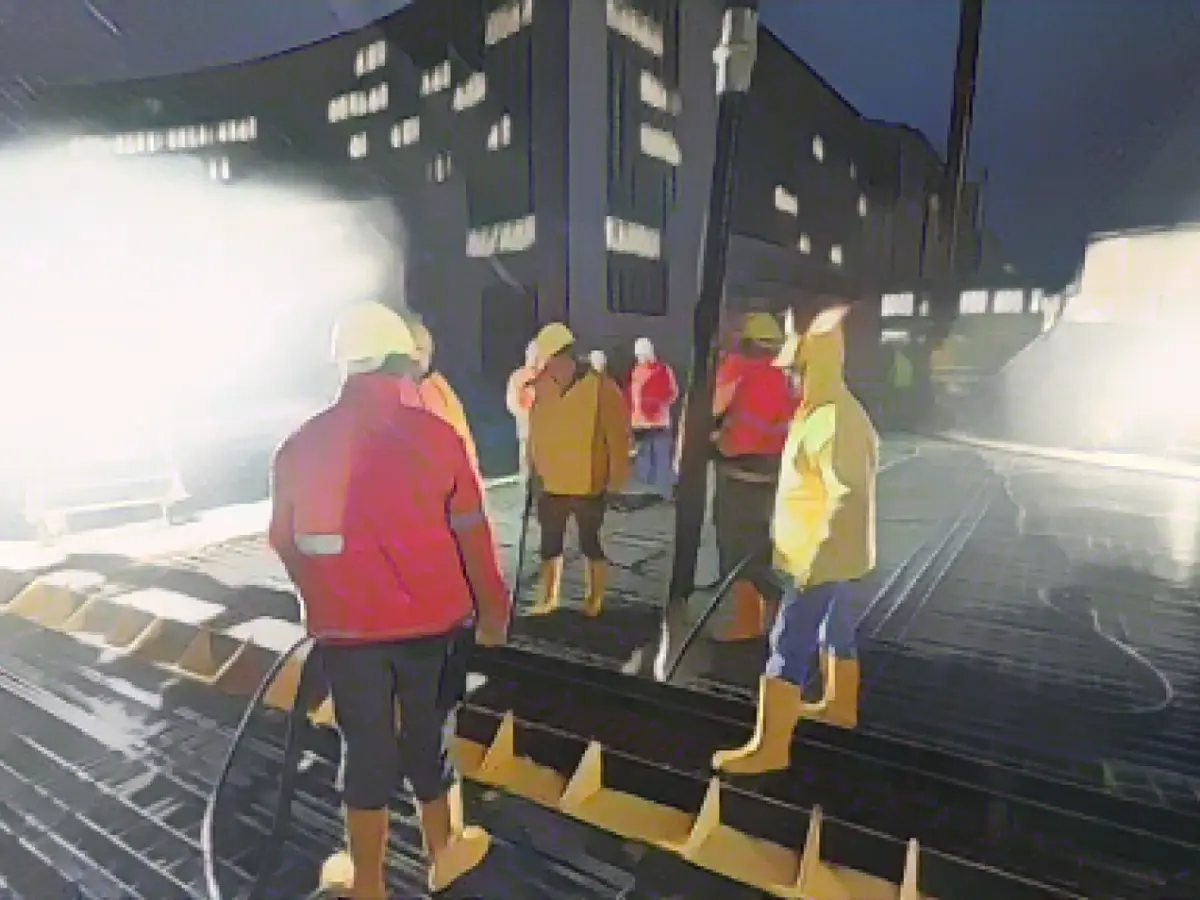Stuttgart 21 Rail Project Faces Cost Increases and Delays: VCD Demands Focus on Operations
The German Ecological Transport Association (VCD) has urged focus on a smooth start to operations at the new Stuttgart 21 terminal station, following a recent announcement of further cost increases in the project. With the hefty price tag now estimated at around 11 billion euros, the VCD insists that passenger service reliability and quality should take top priority.
Existing station operation should be continued until the underground station is stable, as per the VCD's recommendations. The association's statement underscores the necessity of securing a stable and efficient digital infrastructure before advancing towards the new station.
The Stuttgart 21 rail project, which has been overseen by the German Press Agency (Deutsche Presse-Agentur), is confronting higher construction costs, causing the latest cost increase. Despite the recent news, DB did not comment on the specifics and referred queries to a planned supervisory board meeting on December 18th.
The planned December 2025 operation date for the station remains inconclusive. Deutsche Bahn continues to stick to its schedule, but it recently admitted that issues with digitalization pose a challenge.
Gero Treuner, a VCD regional board member in Stuttgart, has asserted the importance of realistic commissioning timetables to prevent service deterioration, frequent transitional conditions, and further delays. Treuner's statement draws parallels with the mismanagement and delays experienced during the commissioning of Berlin Airport.
Baden-Württemberg's Transport Minister Winfried Hermann recently emphasized the need for a well-planned trial operation period due to the intricate nature of the Stuttgart 21 project. "New infrastructure, new digitalization, new trains, and new timetables require careful consideration and management to minimize potential obstacles in delivering a successful project," Hermann said.
The VCD highlights that addressing the complexity and innovation involved in Stuttgart 21 is essential for a smooth completion. To this end, the organization encourages stakeholder engagement, adaptability, digitalization, capacity planning, and transparency.
Related Articles:
References:
[1] The Local Germany (2019), [2] Deutsche Welle (2019), [3] Railway-News (2020), [4] Sabine Lieb (2018), .
Enrichment Data:
The Stuttgart 21 Rail Project has been plagued with numerous challenges that have contributed to cost overruns and delays:
- Historical underinvestment in infrastructure: Critics argue that years of underinvestment have led to the current state of aging and clapped-out infrastructure, which in turn accelerates project delays and cost overruns.
- Complex planning procedures and political paralysis: The project involves complex planning and approval processes, exacerbated by political instability and feuding ruling coalitions, resulting in additional challenges for project delivery.
- Scope creep and mismanagement: The project's scope has expanded over time, leading to further cost increases. Critics argue that the project's budget has more than doubled due to wasteful expenditures and a lack of proper planning.
- Stakeholder disagreements: The project faces opposition from various stakeholders, such as the Action Alliance Against Stuttgart 21, which argues that the main objective is not improving rail traffic but facilitating new real estate projects.
- Technological and design challenges: Integrating new infrastructure into existing systems while maintaining operational continuity adds a considerable layer of complexity. The project requires a robust and adaptable approach to successfully navigate these challenges.
In response, stakeholders have taken various initiatives to overcome these challenges:
- Collaborative approach and early stakeholder engagement: Michael Rathgeb, Director at Ingenhoven Architects, advocates for a collaborative, adaptive, and transparent team environment to ensure successful project delivery.
- Digitalization and efficiency measures: The rail industry emphasizes digitalization, leveraging advanced technologies for traffic management, train control systems, and communication technologies, to streamline processes, reduce delays, and enhance transparency.
- Capacity planning and management: Integrated capacity planning is critical to balance supply and demand. This involves technological standards for infrastructure, including traffic management systems and train control systems, which support planners in generating optimal solutions for the entire network.
- Transparency and open communications: Deutsche Bahn strives to be transparent regarding anticipated constraints to help operators plan effectively, informed passengers regarding potential disruptions, and manage expectations to minimize delays.








